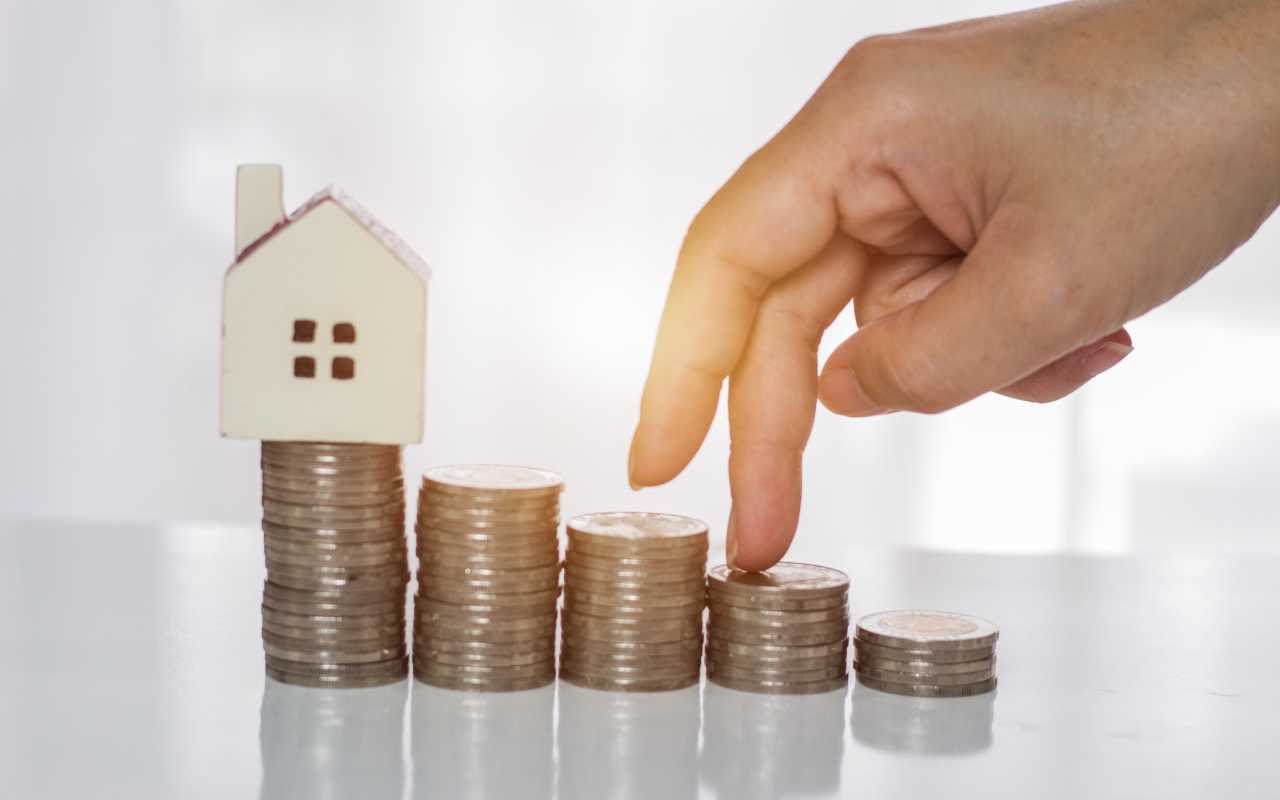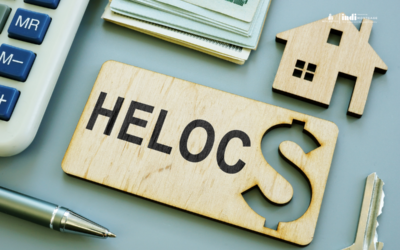Welcome To Our Mortgage Educational Blog About:
Am I Ready To Buy A House? – Signs To Help You Find Out!

Are you feeling the urge to become a homeowner, but wondering if you’re truly ready to take the leap?
Buying a house is one of the biggest financial and personal decisions you’ll ever make. This makes it essential to evaluate your readiness before signing on the dotted line.
From financial stability and budgeting to lifestyle considerations and future plans, here are the signs to help you make a decision, especially if you are a first-time homebuyer.
SIGNS YOU’RE READY TO BUY YOUR HOME
Financial Stability
It’s important to have a clear understanding of your current financial situation, including your income, expenses, and savings.
Being financially stable means that you’re less likely to face financial hardship in the future and can manage unexpected expenses or emergencies.
Signs that you are financially ready to buy a house –
a. Steady Income
This means that you have a consistent source of income that you can rely on to pay your bills, including your home mortgage payments.
Lenders will typically look at your income when determining your eligibility to apply for a mortgage, and having a steady income can increase your chances of being approved for a mortgage.
b. Savings
Having savings means that you have money set aside for unexpected expenses or emergencies. It’s important to have enough savings to cover at least three to six months of living expenses.
Savings can also assure lenders that you’re financially responsible and can handle unexpected expenses that may come up when owning a home.
c. Low Debt-To-Income Ratio
The debt-to-income ratio (DTI) is a measure of your debt relative to your income.
A low DTI means that you have less debt relative to your income, which is a sign of financial stability.
Generally, a DTI of 36% or less is considered good, while a DTI of 43% or higher may make it difficult to qualify for a mortgage.

Budget & Affordability
Having a clear understanding of your budget will help you determine how much you can afford to spend on a house and prevent you from getting into financial trouble down the line.
Signs that you can afford your new home –
a. Being Able To Afford The Down Payment
The down payment is a significant upfront cost that is typically required when buying a house.
The amount required varies depending on the type of home loan and the lender, but generally, it’s around 5-20% of the home prices.
If you have saved enough money to cover the down payment, it’s a sign that it is the right time to buy a house.
b. Calculating Monthly Mortgage Payments
Mortgage payments consist of principal, interest, property taxes, and insurance.
You can use a mortgage calculator to determine your estimated monthly payments based on the purchase price of the home, your down payment, and your interest rate.
If you can comfortably afford these monthly payments and still have money left over for other expenses, it’s a good sign that you can afford to buy a house.
c. Saving For Closing Costs
Closing costs can include fees for the appraisal, title search, title insurance, mortgage insurance, and other related expenses.
These costs can vary depending on the location and the lender, but they can add up quickly.
If you have saved enough money to cover the closing costs, it’s a sign that you’re financially prepared to buy a house.
Remember to consider all of your expenses carefully and to only purchase a home that fits within your budget.
Lifestyle & Future Plans
Owning a home is a long-term commitment that can impact your life in many ways, so it’s important to think about how it fits into your lifestyle and future plans.
Signs that you have a future plan –
a. Long-Term Commitment
One sign of being ready to buy a house is being committed to staying in one place for a while. It’s important to be sure that you’re ready to put down roots in a particular location.
If you’re not sure that you want to stay in one place for an extended period, it may be better to hold off on buying a house.
b. Settled Career Plans
Owning a home requires a stable income, making it essential to have a solid understanding of your future income potential.
If you’re in a stable career with good income potential, it may be a good time to consider buying a house.
c. Family planning
If you’re planning on starting or expanding your family, owning a home can provide more space and stability for your family.
It’s important to consider the number of bedrooms, the size of the backyard, and the neighborhood when buying a home with family planning in mind.
Good Credit Score
A good credit score means that you have a past record of paying your bills on time and managing your finances responsibly.
A good credit report can also help you qualify for a lower mortgage rate, which can save you thousands of dollars over the life of the loan.

Mortgage Pre-Approval
Pre-approval shows that a lender has reviewed your financial situation and determined the maximum amount they’re willing to lend you for a mortgage.
Having a pre-approval letter can also give you a better idea of what you can afford, which can help you focus your search on houses that fit your budget.
It’s important to note that pre-approval isn’t a guarantee that you’ll be approved for a mortgage, but it can be a good indicator of your financial readiness to buy a house.
Consider Other Expenses
When buying a house, it’s essential to consider the other expenses that come along with homeownership.
These expenses can include property taxes, homeowners insurance, maintenance and repairs, utilities, and HOA fees if applicable.
Signs of being prepared for these expenses –
a. Saving For Emergencies
Being financially prepared for unexpected expenses is a sign that you’re ready to buy a house.
It’s recommended that you have at least three to six months’ worth of living expenses saved in an emergency fund.
This fund can be used to cover unexpected expenses like a broken water heater or a leaky roof.
b. Understanding Of Utility Costs
Having an understanding of utility costs is another sign that you’re prepared for the expenses of homeownership.
Utility costs can include electricity, gas, water, and internet.
It’s important to research the average utility costs for the house you’re interested in buying to ensure that you can afford these expenses.
c. Future Plans For Expenses
Having future plans for expenses is a sign that you’re financially prepared for homeownership.
For example, if you know that you’ll need to replace the roof in five years, it’s important to budget for that expense now.
Other future expenses could include upgrading appliances, renovating a bathroom or kitchen, or landscaping the yard.
Reasons To Assess If You Are Ready To Buy A Home
If you don’t assess your readiness before buying a home, you may face several challenges that can make homeownership a stressful and unpleasant experience.
Here are some potential consequences of not assessing your readiness before buying a home:
- Financial Stress
- High Debt Levels
- Negative Impact On Credit
- Inability To Enjoy Homeownership
Are You Ready To Buy A House?

It’s important to have a clear understanding of your financial situation, including your credit score, budget, and expenses, before purchasing a house.
Additionally, it’s crucial to consider your lifestyle and future plans to ensure that a house fits your long-term goals.
By reviewing the signs of being ready to buy a house, you can evaluate your financial and personal situation and make an informed decision as a first time home buyer Edmonton.
Remember to take your time and do research on the current housing market. Speak with a trusted realtor, financial advisor, or mortgage lender for guidance and support.
With proper preparation and consideration, you can make the decision to buy a house with confidence and enjoy the benefits of home ownership for years to come.
Are you ready to buy your home? Reach out to me directly or start your application here: www.sandraforscutt.ca/mortgage-application/
Don’t hesitate to contact us with any questions you may have.
Recent Educational Blogs
Smart Steps for First‑Time Home Buyers in Canada
Feb 2026 | Smart Steps for First‑Time Home BuyersBuying your first home is one of life’s most exciting milestones—but it can also feel like stepping into uncharted territory. Between saving, budgeting, and securing financing, there’s a lot to think about before you...
First Responder Mortgage Program
Jan 2026 | First Responder Mortgage ProgramAt Metro Mortgage Group, we have deep respect for the everyday heroes of our city — the members of the Edmonton Police Service, EMS, and Fire Rescue Services. Your commitment keeps our community safe, often at great personal...
Pros and Cons of a Home Equity Line of Credit (HELOC)
Dec 2025 | Pros and Cons of a Home Equity Line of Credit (HELOC)If you’re a Canadian homeowner, you’ve probably heard friends or family talk about using a home equity line of credit, or HELOC. People often use it to renovate, consolidate debt, or help kids with school...




